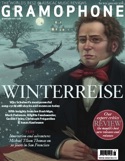Texte paru dans: / Appeared in: |
|
|
Outil de traduction (Très approximatif) |
|
|
Reviewer:
Fabrice
Fitch Several of The Hilliard Ensemble’s earliest recordings were of 15th-century English music, so it is fitting that they should return to this repertory in this, their final recording. Much of this music has figured in their concerts without having been recorded previously but several pieces hark back to those early years. The opening number, Thomas gemma, is one they recorded as part of a set devoted to Thomas of Canterbury. The tone is not quite so bold now but the interplay between voices is as absorbing as ever. The remaining numbers devoted to the saint are among the disc’s finest performances. Mary, the most serenaded saint of all, has most of the rest of the programme to herself. The carols run through the programme like a thread: Marvel not Joseph blends intricacy and intimacy, and the lilt of Lullay, lullow and There is no rose are touchingly conveyed. Particularly in the more elaborate polyphony, tempi are a touch slow for comfort (in the motets by Plummer, for example), but The Hilliards’ feeling for programme-building is aptly illustrated by the final number, Sheryngham’s Ah, gentle Jesu, with each of whose verses the dialogue between Christ and the penitent sinner assumes ever greater poignancy – a marvel of pacing and restrained emotion.
It is poignant also to bid The Hilliards farewell at the conclusion of their remarkable career. In Philip Clark’s excellent appreciation of a year ago, contemporary music rightly played a significant part. But although it did feature more prominently in their programming after the departure of founder-director Paul Hillier (particularly their collaboration with Jan Garbarek), in fact the majority of their recorded output has been of medieval and Renaissance repertories like this. The group’s early recordings of English music had a brash selfconfidence which time has not dimmed. I well remember the revelation of their first Josquin recording for EMI Reflexe when it came out, and hearing their Dunstaple shortly afterwards – two recordings of which I may truthfully say that they changed my life. In latter years, the sound has been more studiously polished and less edgy, the repertoire somewhat more uniform in tone. Those who knew them only through their ECM recordings would miss bawdy Purcellian catches, louche 15th-century lyrics, more decorous 19th-century German part-songs and some very fine Schütz, for example. This is an impressive legacy for which the members of The Hilliard Ensemble past and present have earned our enduring gratitude. |
|
|
|
|
|
Cliquez l'un ou l'autre
bouton pour découvrir bien d'autres critiques de CD |
|




